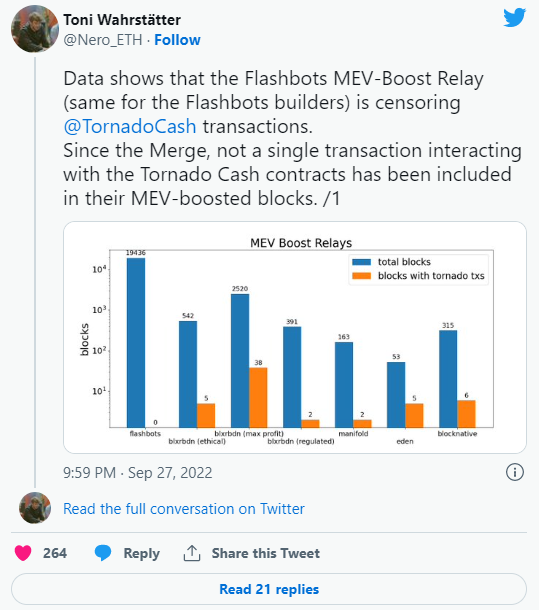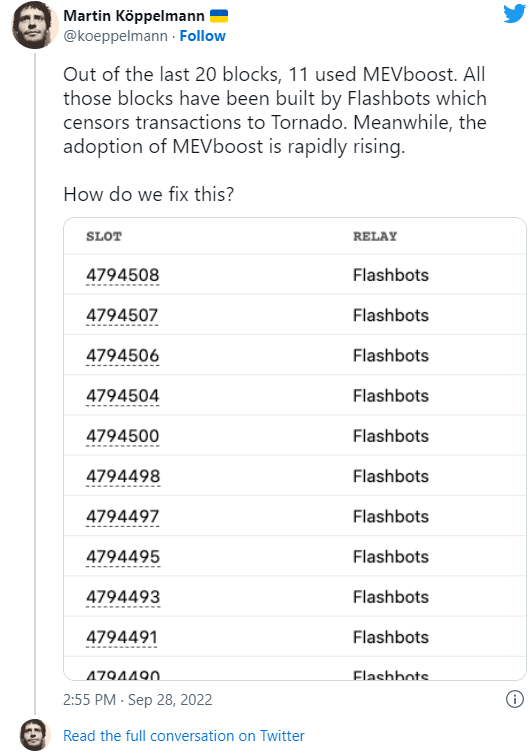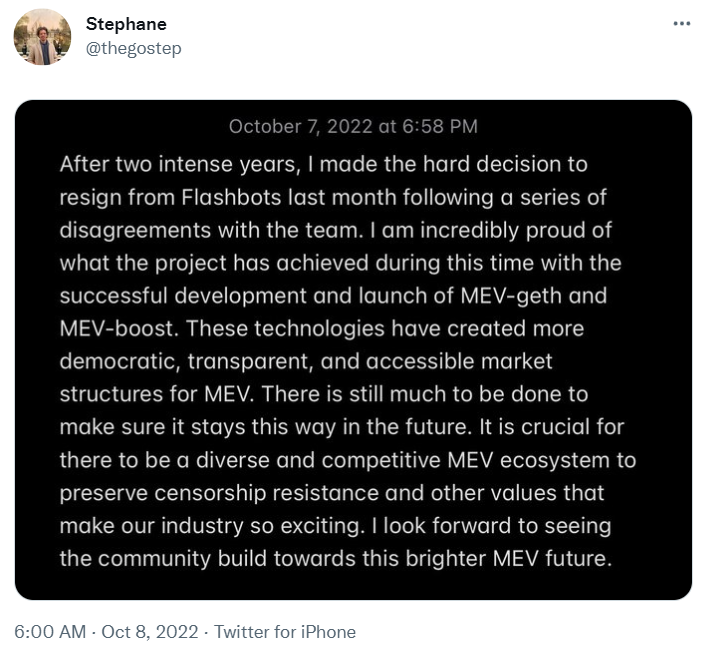Following the Tornado Cash ban, R&D firm Flashbots has started censoring Tornado-linked transactions through MEV-Boost. For developers, code is free speech; as such, censorship is seen as an attack on their freedom. Last week, Flashbots co-founder Stephane Gosselin escalated this free speech debate by stepping down amid the censorship of transactions.
What’s an MEV-Boost?

Source: Twitter
Ever since the Ethereum blockchain moved to a PoS consensus mechanism, it now relies on validators instead of miners. The validators decide the transactions that go into each block and their order. This is where the Maximum Extractable Value (MEV) comes in.
MEV refers to the fee that validators receive to insert a transaction into the blockchain. This poses problems of centralization and exploitation. With all the requested transactions in front of them, validators (and other powerful Ethereum infrastructure users like block proposers) can abuse their power by starting gas wars and letting whales front run transactions. This is done by the wealthy to receive the best buy and sell prices. To level the playing field, Flashbots' MEV-Boost reduces these negative aspects of MEV. The software is more equitable to the average user and keeps transactions decentralized. But, in turn, the software is posing a different problem regarding censorship.
The Flashbots Saga
Companies like Flashbots, Blocknative, and BIoXroute provide the MEV-Boost relay. More than 80% of blocks are relayed by Flashbots, which means 80% of blocks are facing censorship.
An analysis revealed that out of 20 blocks, 11 were created by Flashbots and did not include any Tornado Cash transactions. This raises concern since the adoption of MEV-Boost is rising quickly.

Source: Twitter
In response to the backlash, Flashbots made its MEV-Boost code open source just before the merge, giving developers the option to code their own version of relays. However, the company has been silent on the topic of censorship, even though developers have been pressuring Flashbots to acknowledge the problem.
Amid the controversy, co-founder Stephane Gosselin made a Twitter announcement that he was leaving Flashbots due to “disagreements with the team.”
He voiced similar concerns being raised in the Ethereum community as he mentioned it was “crucial for there to be a diverse and competitive MEV ecosystem to preserve censorship resistance.”

Source: Twitter
Final Take
Flashbots' dominance could pose a problem for Ethereum’s base layer neutrality.
Its product lead, Robert Miller, recently stated that the project is trying to reduce its MEV influence by making more of its knowledge base and infrastructure open source. It is also submitting blocks from its builders to other relays. But Miller did not clearly state whether they would introduce uncensored relays.
Looks like only time will tell how the MEV problem will be resolved to keep Ethereum decentralized and censorship-resistant.
Sources:
1. https://docs.flashbots.net/flashbots-mev-boost/introduction
2. https://www.mevboost.org/
3. https://twitter.com/thegostep/status/1578520702574960640?s=20&t=z_WPtETfhAAsmjaBX90U8A


